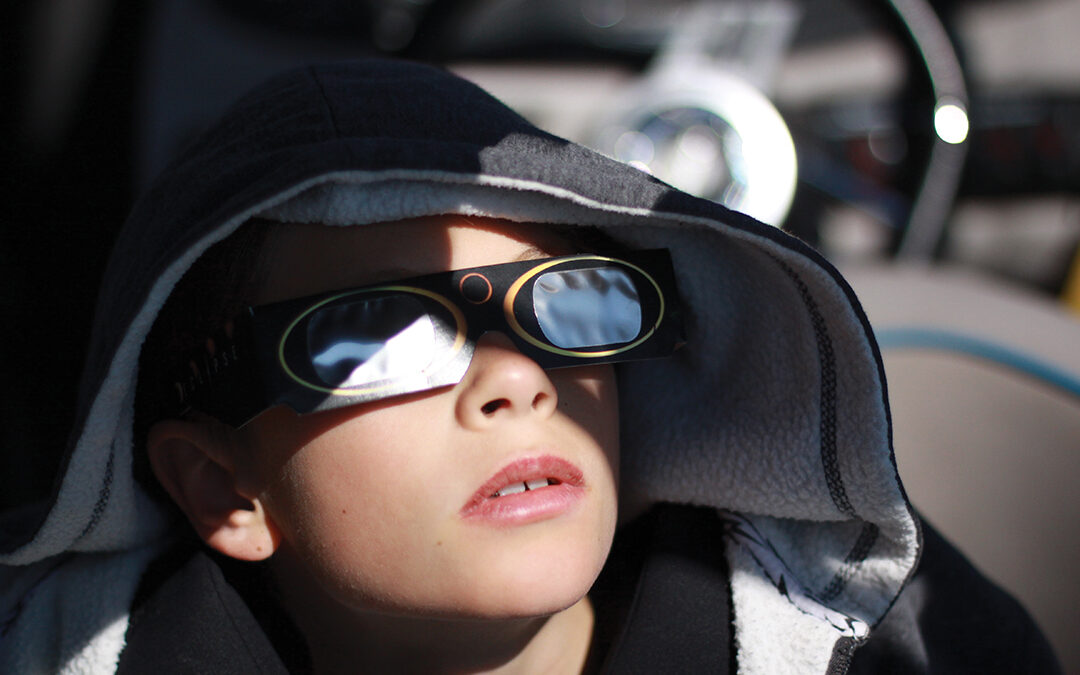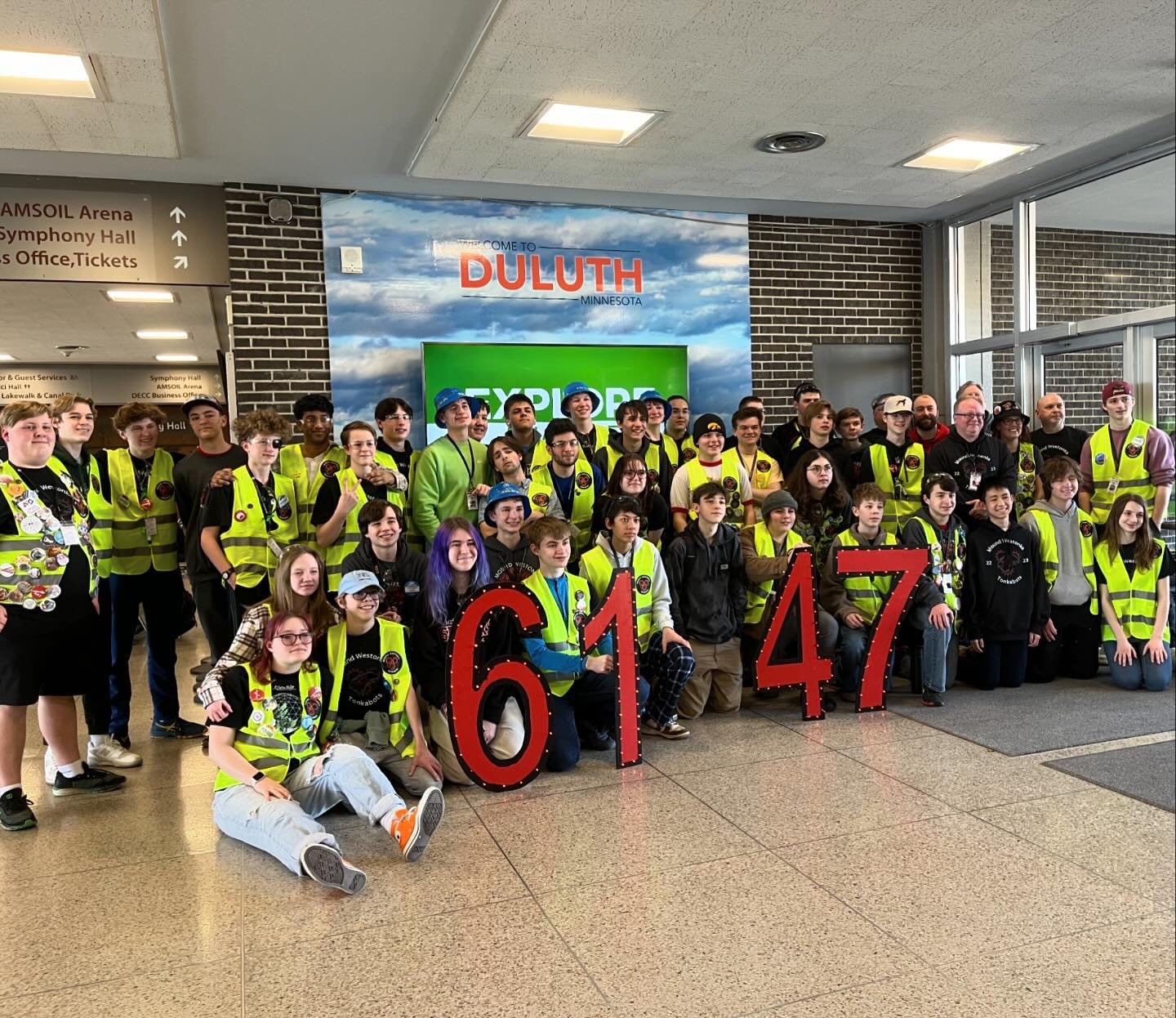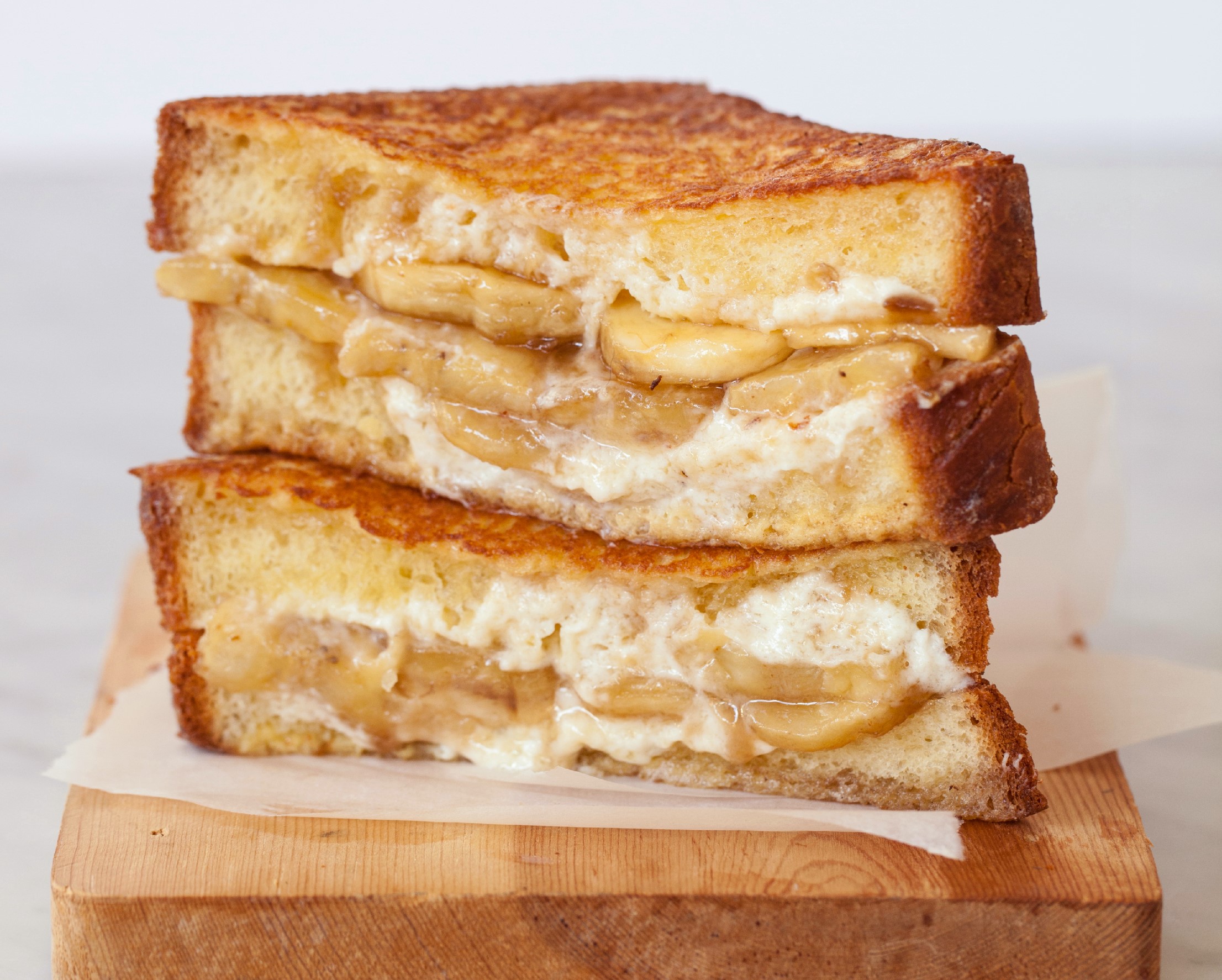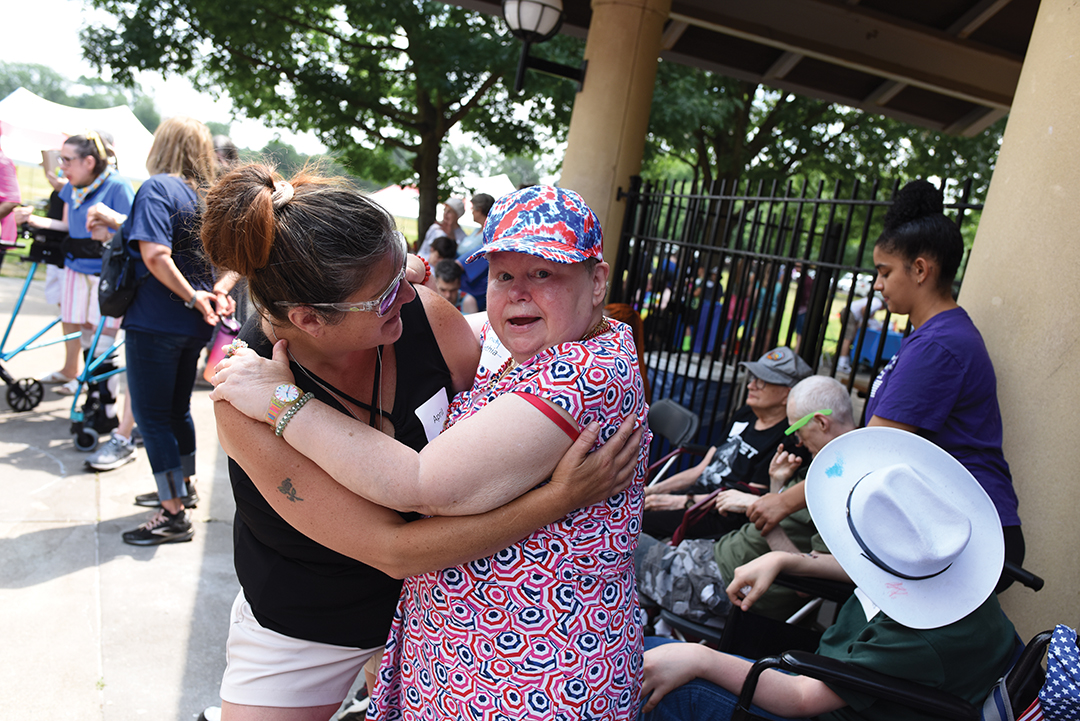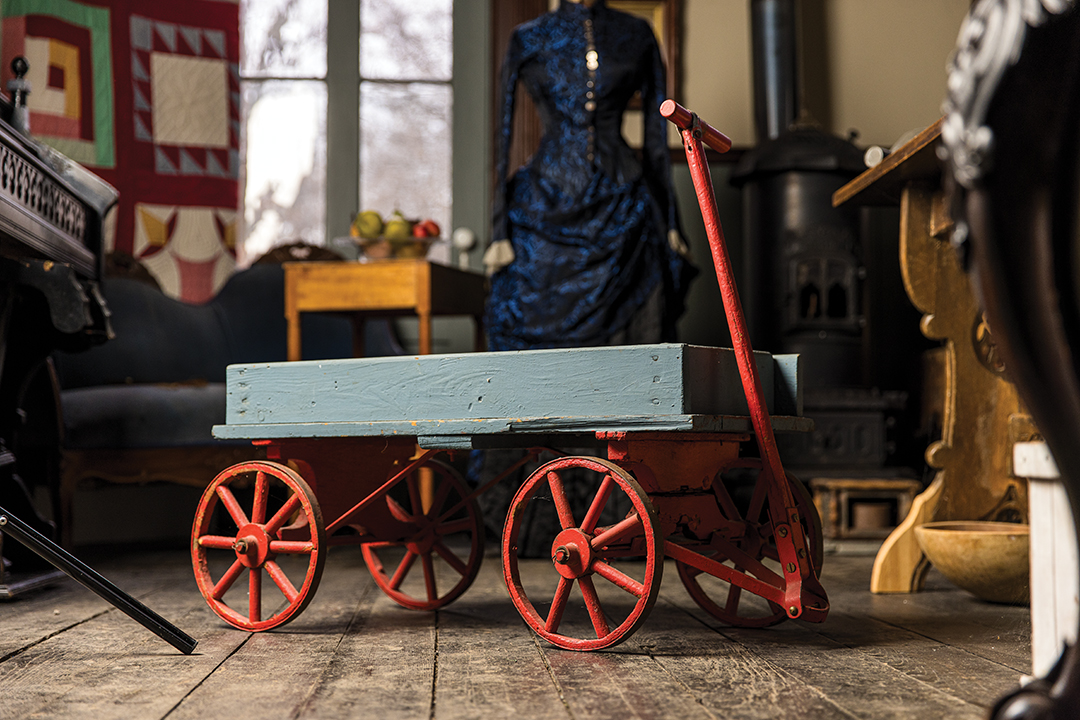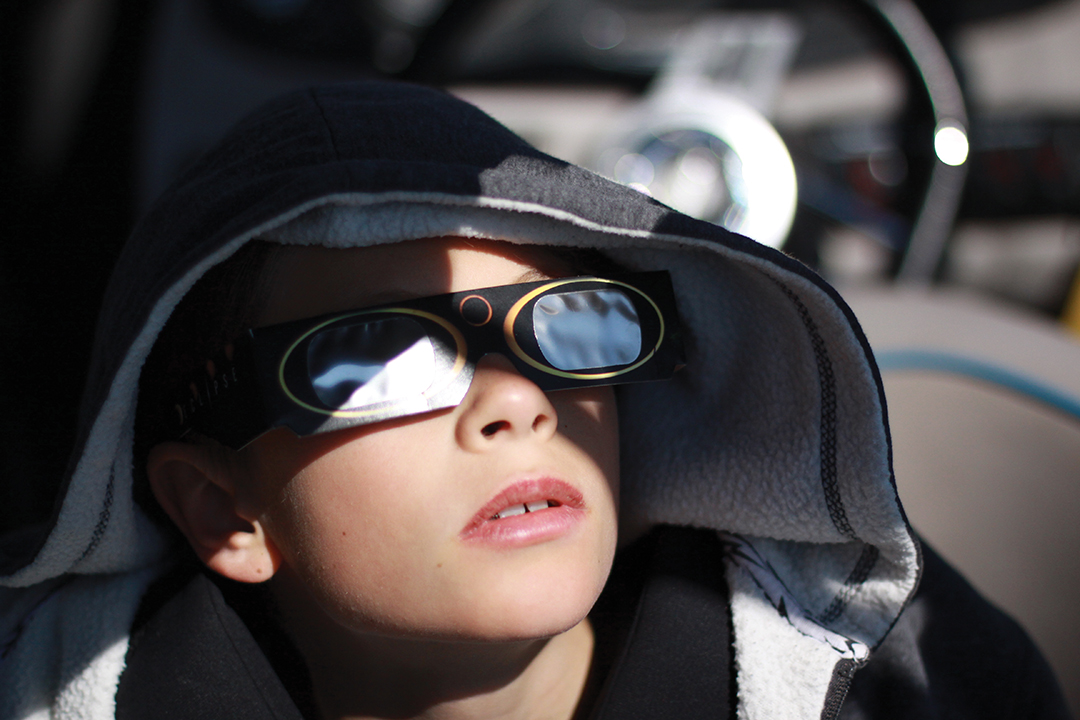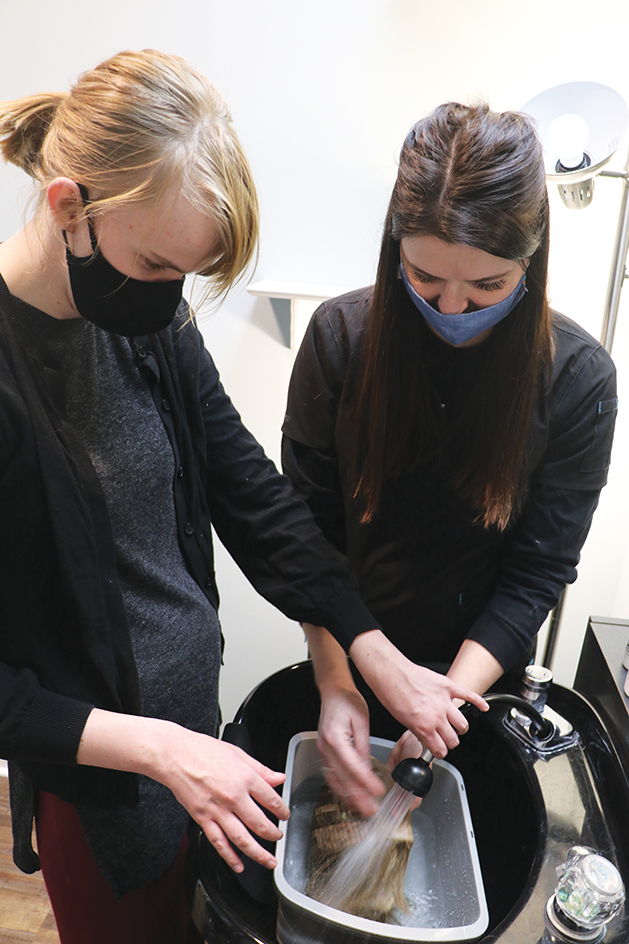
SAIL student Reilly Hawley shampoos a wig with Taylor, a Carolyn Anderson Salon and Wig Studio employee. Photo: Mary Cornelius
Transition program fosters independence for students.
In January 2021, the Minnetonka School Board approved the purchase of the Shorewood Professional Building, once home to a Park Nicollet clinic. “Six months later, we started,” says Christine Breen, executive director of special education for Minnetonka Schools.
Started what? Minnetonka’s Students Achieving Independent Life (SAIL) transition program grabbed a wind and set sail. Prior to the 2020–21 school year, Minnetonka’s transition students (young people ages 18–21 with special needs) shared a program with students from Hopkins and St. Louis Park. “That program had existed for roughly 17 years,” Breen says.
Now operating on its own, Minnetonka’s SAIL program provides young people with special needs life lessons, career training and guidance to achieve the program’s goal: for all of its students to be successful after high school. “We only have some of these students for two [to] three years, and we want to capitalize on their time with us,” Breen says.
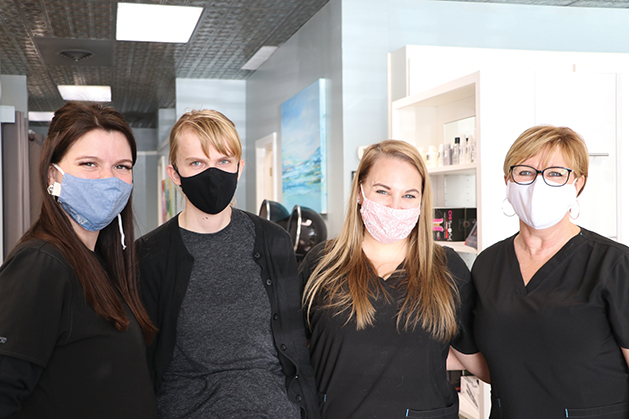
Carolyn Anderson Salon and Wig Studio employees pose with Reilly Hawley, who works with them two days a week as part of the SAIL program.
Carolyn Anderson had a son take part in the shared transition program. “The biggest change is that the kids get to stay within the district,” she says. “That means they stay close to their teachers, and that means they stay in their community.”
Anderson has nothing but good things to say about Minnetonka’s Special Education program, its leadership, staff and outcomes. “My son is independent,” she says. “He’s married, he has a house and he has his own business.”
While her son is long out of the program, Anderson still plays a role in it. Her salon, Carolyn Anderson Premier Salon and Wig Studio, is one of a number of local businesses to partner with SAIL. Others include the Bernard Group and Trouvaille Memory Care. “One of the best things about our community support is that it allows for individualized and unique experiences,” Breen says.
“As a new program, they’re doing what they say they were going to do,” says Jen Hawley, whose daughter, Reilly Hawley, 19, is a SAIL participant. “They’re finding jobs that meet our kids’ cognitive needs.”
Reilly works in Anderson’s salon, folding laundry, washing mirrors and prepping wigs that are being donated at no cost to women battling cancer. “Reilly is driven to be important, and what she’s doing makes her feel important,” Jen says.
But it’s more than that. “After dinner one night, Reilly looked at me and said, ‘Mom, I’ll do the dishes,’” Jen says. “Believing she can is coming from the program, and it’s eye-opening. In the end, it’s a little bit of them teaching us,” she says. “Our kids can do more than we think they can. And you know what? That’s pretty cool.”



